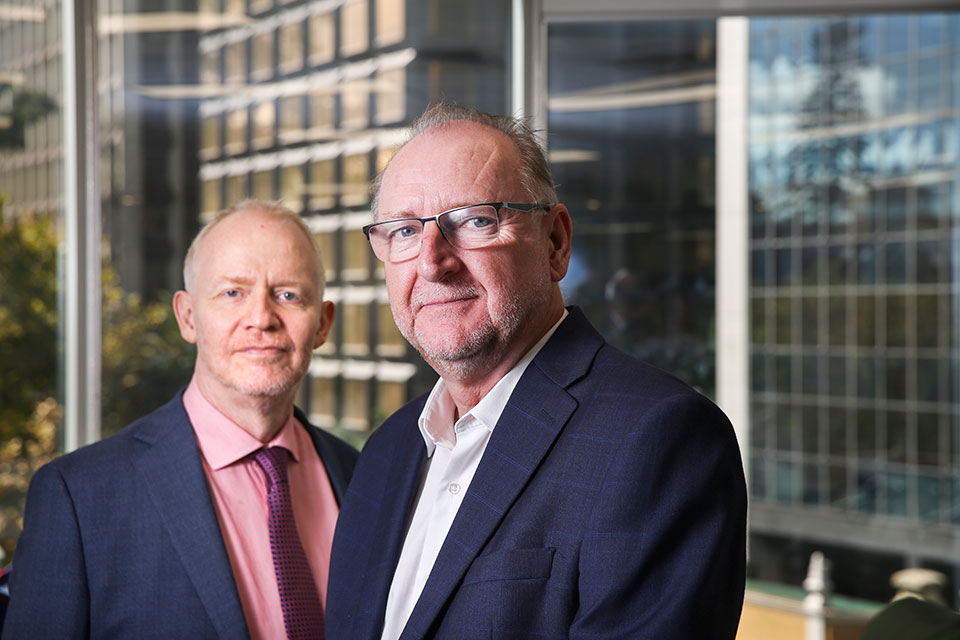Why a ‘set and forget’ mentality is the wrong approach when fostering technical talent

The technical specialists in an organisation have the potential to help create new products, introduce better process and cost saving, and innovate to make your company more competitive.
These are all offers that the executive suite is keen to hear. But in the majority of organisations, few ideas for technical innovation make it to the boardroom, let alone are executed.
The problem is that experts such as software developers, scientists, medical researchers, engineers and economists are not trained to help their ideas reach the boardroom.
I have coached experts for nearly 10 years, and I continue to be amazed by how much effort and expense companies go to hire the right experts, and how little attention they pay to making experts effective once they are hired.
“Set and forget” doesn’t work. Here’s why.
Why technical talent is neglected
As a CEO, you’ll be familiar with how people leaders are developed. From the first day on the job they are challenged to achieve business goals. Through their career, their ability to hit those goals is improved by appraisals, mentoring, coaching, development and career ladders that encourage peak performance.
Technical experts don’t get that support. They are hired, given strictly technical goals to achieve, and they are then generally left to get on with it.
But as experts become more senior, their work invariably becomes less technical and more strategic. Suddenly, they need the skills to influence and negotiate, to understand your commercials and strategy, to sell technical ideas to non-technical teams, to tap into sponsor networks, and to smoothly drive change.
Otherwise, their ideas and influence remain limited. They may have terrific ideas to drive your business forward, but they can’t frame innovation in a way that makes commercial sense. Their ideas never make it to the boardroom.
Even at their most senior, I rarely see technicians who have had the full range of business-skills development they need to be truly effective.
“Set and forget” has struck again. Competitiveness suffers.
Here’s three practical steps that CEOs can take to level up their technical teams.
- Demand HR build a capability model for experts
People leaders want to learn to lead teams. Technical experts want something different: they want to learn how to lead projects, ideas and innovation
They want to learn “expertship”, not “leadership”.
Ask your HR team to create an expertship capability model they can run alongside your existing leadership framework. This ensures that your technical specialists won’t suffer from the neglect of “set and forget”.
It also improves retention for expert teams. Your specialists will see that – unlike the majority of employers – you care enough to invest in their long-term career. - Acknowledge that while expertship and leadership skills overlap, they’re not the same
As a coach of experts, I often see organisations try to develop their technical teams by sending experts on a people leadership program.
This is a mistake. Experts want specific, practical skills taught from their perspective. The framing and content of people leadership programs is irrelevant and boring to them. - Make business success part of expert career goals
Many companies don’t think to ask the question: why are our technical specialists disconnected from our business? At the same time, these organisations will tell me their technical teams are “difficult to work with” or “too fixated on detail”, or any number of other well-worn cliches.
But these are questions of nurture, not nature.
From their first day, challenge technical teams to achieve business goals, support them to learn business skills, and give them a career ladder that helps them continue to contribute their expertise to your organisation as they become more senior.
Then you will see fully effective technical teams.
There is a great deal more experts can contribute to your organisation’s competitiveness and success. But you have to ask them to do it, and you have to support them to learn how.
Written by Alistair Gordon.
Bring the best of the CEOWORLD magazine's global journalism to audiences in the United States and around the world. - Add CEOWORLD magazine to your Google News feed.
Follow CEOWORLD magazine headlines on: Google News, LinkedIn, Twitter, and Facebook.
Copyright 2025 The CEOWORLD magazine. All rights reserved. This material (and any extract from it) must not be copied, redistributed or placed on any website, without CEOWORLD magazine' prior written consent. For media queries, please contact: info@ceoworld.biz











